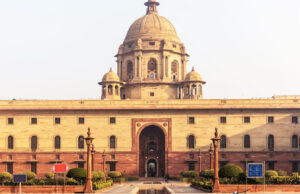For an independent, transparent Judiciary

One must take a serious note of Chief Justice of India, TS Thakur’s allegations that the Union government is trying to bring the Judiciary to a grinding halt. In its sharpest-ever attack against the NDA government, the Supreme Court asked last Friday whether the Centre intends to bring the entire Judiciary to a “grinding halt” by sitting on recommendations of the Collegium for appointment and transfer of judges to High Courts across the country. The CJI cautioned the government that if matters continued in the same vein, the Court would be forced to intervene and call for every file of every recommendation forwarded by the Collegium to the government for clearance.
This isn’t the first time that Justice Thakur has raised such concerns. At a conference in April, he lamented “inaction” on the part of the Centre to increase the number of judges to handle the “avalanche” of litigations even as Prime Minister Narendra Modi assured him of his government’s resolve in finding a solution. He accused the Centre of sitting on 170 recommendations for judges to the High Courts. He further argued that the Centre was doing nothing to increase the number of courts and judges, thus denying poor petitioners and underprivileged prisoners their due justice. All these allegations were made in the presence of the Prime Minister.
In a strong rebuttal to Prime Minister Narendra Modi’s comment that judges take long vacations, the CJI said: “Judges don’t go to hill stations to enjoy the summer break, but spend this time on writing judgments and on clearing their desks so that fresh cases can be taken up.” In the presence of senior judges and top government officials, the CJI reminded Modi that the ratio of the number of judges to the population is grossly inadequate. One cannot merely blame the judiciary for the high pendency of cases in the courts, he argued. “The Government of India commits itself to increase the number of judges, but nothing is done. The Centre says the States should take the lead and the States say Centre should take the lead. As this tug-of-war goes on, judges’ strength remains the same and litigants remain in jail,” Thakur said.
As of August 12, 2016, the total pendency is 2.24 crore cases in various courts. There are 478 judicial posts to be filled up in various High Courts. Even the Supreme Court has three vacancies to fill. A Supreme Court bench recently said: “Most High Courts are working with only 40 percent of their sanctioned judicial strength and people are languishing in jails for 13 years without a hearing.”
A Law Commission report in 1987 had warned that the country is slipping into a state of crisis due to the paucity of judges. Five crore cases are filed every day, while only 2 crore are disposed of by the judiciary. India’s track record must improve. Our judicial system currently functions under a stress-filled atmosphere and poor infrastructure. The Law Commission reports had also recommended 40,000 judges in the country to tide over the problem of case pendency at that time. The report had also recommended an increase in the number of judges from then 10 judges per 10 lakh people to 50. Since then, India’s population has increased. But there has been practically no increase in the number of judges.
Finding a way to end the deadlock between the judiciary and the executive over the Centre’s Memorandum of Procedure (MoP) for the appointment of judges should be high on the Modi government’s priority list. Serious differences between the apex court and Centre over the terms being suggested in the MoP need to be resolved amicably. The Supreme Court has already rejected the government’s MoP once and it seems unlikely that the two might arrive at an agreement any time soon.
The process of appointment of judges by the Collegium of the Supreme Court and the 24 High Courts of the country is another area of difference. One of the biggest roadblocks in this is the issue of “judicial dynasties”. Nepotism in the Collegium system is a matter of deep concern for any government. There cannot be any denying that inbreeding and nepotism have long been the bane of the Indian judiciary. But our courts have done very little to mitigate this problem. The bedrock of our democracy is the Rule of Law. This means we need an independent judiciary. But it is also incumbent on the judiciary to open itself up to greater transparency.









You must be logged in to post a comment Login